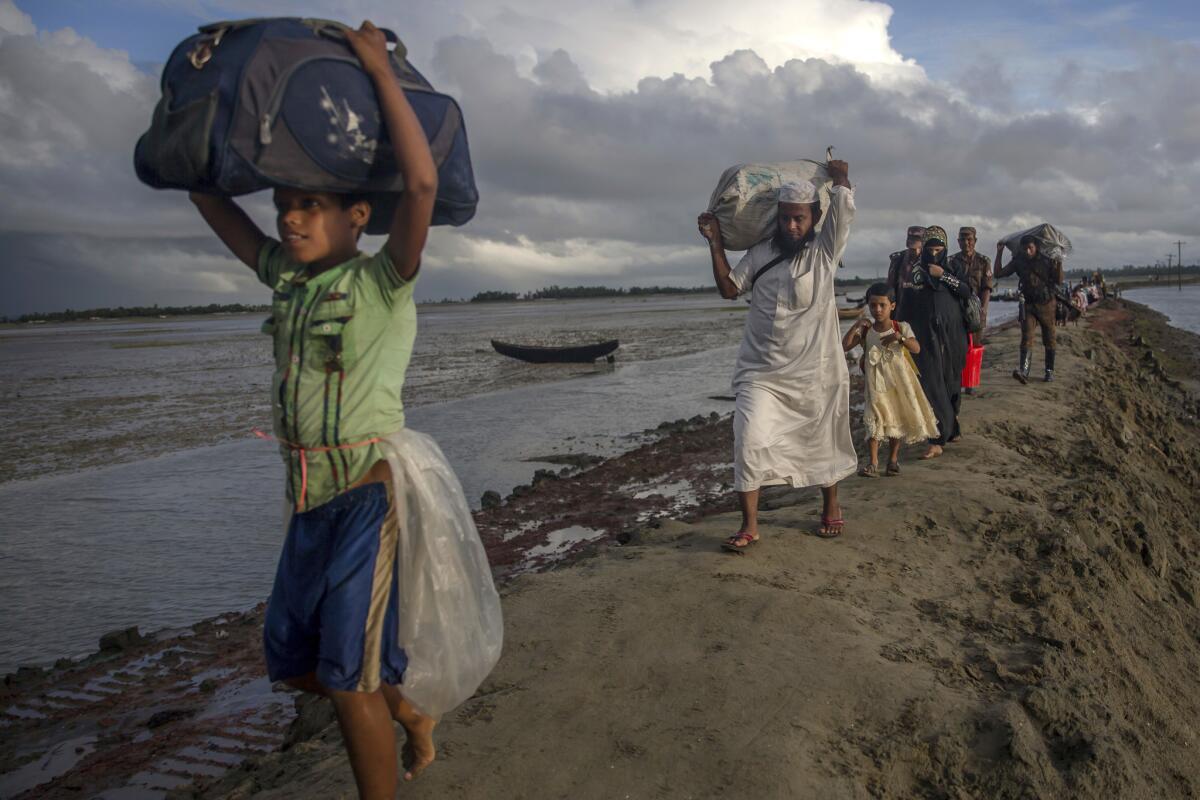At least 60 presumed dead in wreck of ship carrying Rohingya refugees, U.N. says

- Share via
Reporting from Geneva — The U.N. migration agency said Friday that more than 60 people are either confirmed dead or missing and presumed dead following the shipwreck of a boat carrying Rohingya Muslims who were fleeing from violence in Myanmar to Bangladesh.
Spokesman Joel Millman of the International Organization for Migration told reporters in Geneva that 23 deaths have been confirmed after eight more bodies were found overnight following an initial count of 15.
Based on interviews that his agency has conducted with survivors, Millman said, “We believe 40 are missing and presumed drowned” on the vessel, which was thought to have been carrying about 80 people.
The agency says more than 500,000 Rohingya have fled to Bangladesh since Aug. 25, the start of a military crackdown triggered by a coordinated assault by Rohingya militants on 30 police posts and an army base in northern Rakhine state, where many Rohingya live.
The U.N. agency’s Missing Migrants Project said 46 bodies had been retrieved over a three-day period starting Aug. 30 after several boats carrying people trying to reach Bangladesh capsized in the Naf River. It said the incident this week was believed to be the first deadly one in the Bay of Bengal since the exodus of Rohingya began.
The “very tragic” accident involved a vessel that had been at sea for two days with no food on board and amid choppy seas, Millman said. The Bangladeshi captain hadn’t initially charged the passengers any fee for the transport and had been trying to avoid sea patrols and checkpoints, he said.
“The details are absolutely astonishing and remarkable,” Millman said. “At one point, he [the captain] chose to anchor the vessel, but that proved to be a fatal mistake as the rough seas were much worse than he supposed. This was easily within sight of land.”
“People were actually quite distraught that they had gotten so close to safety and yet drowned because the boat was destroyed by the high seas and the torrential rains and wind,” he said.
More to Read
Sign up for Essential California
The most important California stories and recommendations in your inbox every morning.
You may occasionally receive promotional content from the Los Angeles Times.









